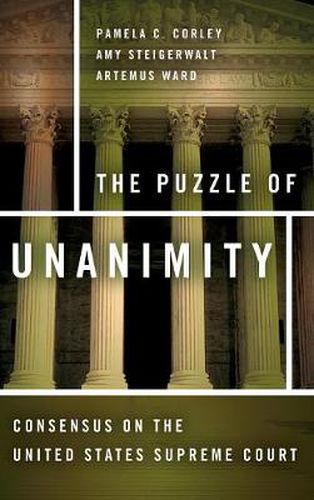Readings Newsletter
Become a Readings Member to make your shopping experience even easier.
Sign in or sign up for free!
You’re not far away from qualifying for FREE standard shipping within Australia
You’ve qualified for FREE standard shipping within Australia
The cart is loading…






The U.S. Supreme Court typically rules on cases that present complex legal questions. Given the challenging nature of its cases and the popular view that the Court is divided along ideological lines, it’s commonly assumed that the Court routinely hands down equally-divided decisions. Yet the justices actually issue unanimous decisions in approximately one third of the cases they decide.
Drawing on data from the U.S. Supreme Court database, internal court documents, and the justices’ private papers, The Puzzle of Unanimity provides the first comprehensive account of how the Court reaches consensus. Pamela Corley, Amy Steigerwalt, and Artemus Ward propose and empirically test a theory of consensus; they find consensus is a function of multiple, concurrently-operating forces that cannot be fully accounted for by ideological attitudes. In this thorough investigation, the authors conclude that consensus is a function of the level of legal certainty and its ability to constrain justices’ ideological preferences.
$9.00 standard shipping within Australia
FREE standard shipping within Australia for orders over $100.00
Express & International shipping calculated at checkout
The U.S. Supreme Court typically rules on cases that present complex legal questions. Given the challenging nature of its cases and the popular view that the Court is divided along ideological lines, it’s commonly assumed that the Court routinely hands down equally-divided decisions. Yet the justices actually issue unanimous decisions in approximately one third of the cases they decide.
Drawing on data from the U.S. Supreme Court database, internal court documents, and the justices’ private papers, The Puzzle of Unanimity provides the first comprehensive account of how the Court reaches consensus. Pamela Corley, Amy Steigerwalt, and Artemus Ward propose and empirically test a theory of consensus; they find consensus is a function of multiple, concurrently-operating forces that cannot be fully accounted for by ideological attitudes. In this thorough investigation, the authors conclude that consensus is a function of the level of legal certainty and its ability to constrain justices’ ideological preferences.